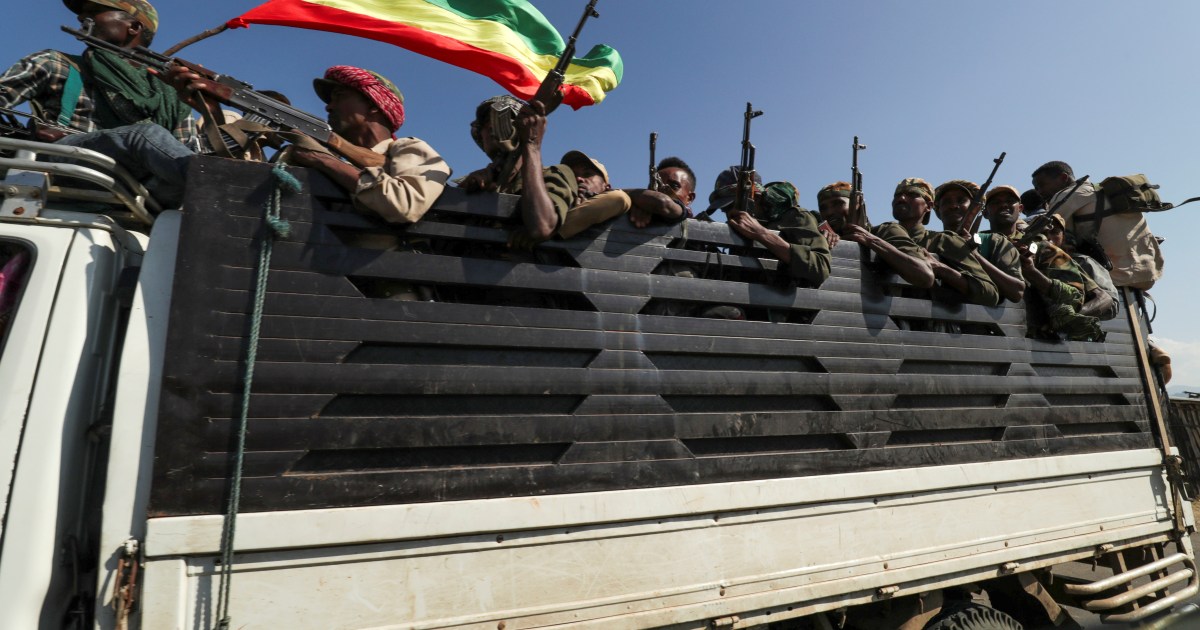The British newspaper The Times said that the mass graves in Tigray (northern Ethiopia) testify to the brutality of the conflict in this region, where long-running tensions unleashed a campaign of murder and rape that displaced about 1.7 million people.
A report by Fred Harter - the newspaper's delegate to the Dengelat area near the Eritrean border, in the northeast of the region, through the testimonies of survivors he met - documented the existence of several mass graves spread across the region.
The delegate of the Times indicated that it is easy to identify and find these graves because the locals marked them with stones painted in light blue, in the hope that the satellites would monitor them from space, and testify to the atrocities they are exposed to.
Many of these graves are covered with blood-stained clothes and shoes, and local residents told the newspaper that one of them contained the bodies of dozens of youths between the ages of 14 and 22.
In the area, which is a dry rocky valley, the Times also observed scattered twisted belts and torn pieces of worn ropes that eyewitnesses said were used to tie many victims before they were killed.
According to local church sources, the total of those killed in this town alone has reached 160, adding to the thousands who, human rights groups say, have been killed in Tigray since the outbreak of the war between the Tigrayan People's Liberation Front and the Ethiopian army backed by ethnic militias last November.
Killed in cold blood
The newspaper also quoted the testimonies of local residents whose relatives were killed in cold blood by the Amhara militia (the second largest ethnic group in Ethiopia) and elements of the Eritrean forces.
"This conflict has largely occurred behind closed doors," said Letizia Badr, Horn of Africa director at Human Rights Watch, commenting on the atrocities in the region. "But there is ample evidence from organizations like our organization and others of committing atrocities, and now it is very difficult to meet a civilian population." They did no harm. "
In Axum town, in the far north of the region, eyewitnesses told the Times that on November 28, Eritrean forces shot hundreds of men and boys in what appeared to be an attack by fighters from the Tigray People's Liberation Front and the townspeople.
As for western Tigray, near the Sudanese border, the Amhara militia has been accused of expelling Tigrayans from their lands, and US Secretary of State Anthony Blinken described the situation there as “ethnic cleansing,” an accusation that the Addis Ababa government has categorically rejected.
The conflict in the province has to this day caused the displacement of about 1.7 million of Tigray's population of 6 million people due to fighting and killing, many of whom live in cramped and unventilated classrooms in schools that have been converted into camps, and they tell stories of fleeing the fighting while they have nothing. Except for the clothes they were wearing and how they walked hundreds of miles until they reached safety.
On the other hand, the Times reported that rape and sexual violence are another bleak aspect of this hidden war in Tigray, and told the stories of some who suffered this fate, such as "Terhas", who was one day sitting inside her home in "Adwa", a town in the middle of the province. , When Eritrean soldiers stormed it and accused it of harboring rebel fighters.
Repeated rape
Terhas says they took her and her two-year-old daughter to an abandoned factory on the outskirts of the city and locked them for seven days in a warehouse where two Eritrean officers raped her.
"They would take turns ... one of them came during the day and the other came at night."
She also reported that she was raped on several occasions while her young daughter was sitting next to her, and how her rapists locked the door on her daughter outside during attacks, so she was crying in fear and knocking on the door until he was allowed to enter.
Another victim who met the same fate was "Makda", who was traveling in a minibus when Eritrean soldiers stopped her near the town of "Edaga Hamus", about 60 miles north of Mekele, the provincial capital. Then they dropped her, blindfolded her, and took her to a nearby location. When she screamed, they muzzled her mouth with dirt.
For the next ten days - Troy Makda - she was tied as a group of 20 Eritrean soldiers abused and raped her for hours at a time.
"They told me we will kill you and never survive ... We will throw you away and find a new one to rape," she added.
In the end, the soldiers left her almost dead in a hole where local residents found her and took her to hospital.

